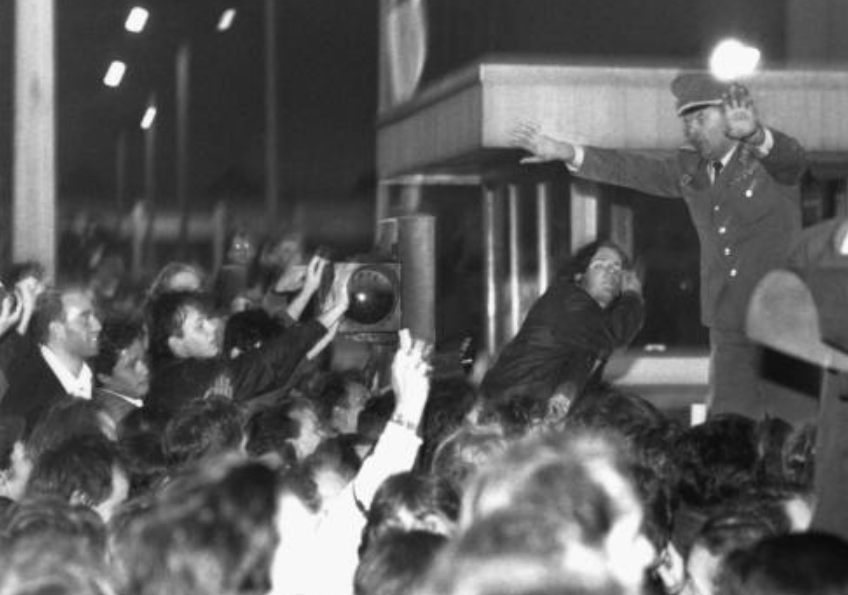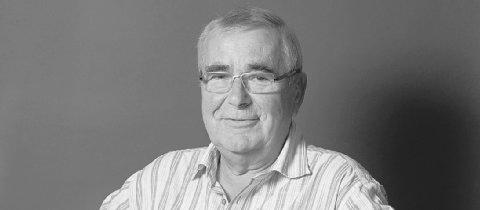November 9, 1989 is my favorite date in German history. The Wall that had divided the country and the city of Berlin for 28 years opened that night.
No one expected this to happen. Not on that day. Not in that way.
Of course, the ground had been prepared. The economy of the German Democratic Republic (who even remembers East Germany’s formal name that was abbreviated as GDR?) was crumbling. It’s not that anyone in the GDR was hungry or homeless or without an education. But the accomplishments of the planned economy never could compare to the prosperity and the extravagant consumerism in the West.
Winds of political change had been blowing in East Germany for a while, stirred up – who would have guessed? - in the Soviet Union. Perestroika! Glasnost! Alas, the East German Socialist Party was too dogmatic, too authoritarian, too fossilized to follow Mikhail Gorbachev’s lead.
But East German citizens were restless, frustrated, and fed up with the authoritarian state and the Wall. Many left the country via Hungary and Czechoslovakia. Those who stayed protested in the streets. Young people allied with older generations of GDR critics, referencing Gorbachev and Marx in their demands. On November 4, 1989, more than 500,000 East Germans gathered in East Berlin’s city center for a peaceful demonstration. They called for political reform, democratic liberties, a truer socialism. Their chant roared through the streets and across the fortified border: “We are the People.”
Five days later, on November 9, there was a slip up at an East Berlin evening news conference. Politburo member and Party spokesman Günter Schabowski read from a note that had been handed to him only minutes earlier, with no briefing at all. East Germans are permitted to cross the border to the West. A reporter asked when this regulation would take effect, and he mumbled “immediately.”
Schabowski’s words were broadcast by West German radio and Television into East German living rooms. East Berliners started gathering at the checkpoint Bornholmer Strasse. This was before Internet and cellphones and still, the gathering quickly grew into a crowd. It was illegal for East Germans to approach the checkpoints without valid papers, but as more and more people arrived, the bravest walked towards the guards and quoted the words they’d heard on TV: We are free to cross. By 10pm, hundreds were literally pressing against the fortifications, yelling their demands. Cars blocked the street as far as the eye could see.
Dramatic as they were, these events don’t add up to the spectacular historic moment of the Wall opening.
On November 9, 1989, Lieutenant-Colonel Harald Jäger was in charge of the border guards working the night shift at the East Berlin checkpoint Bornholmer Strasse. During a break, he listened to that evening news conference. East Germans were free to travel? He'd been told nothing about this astonishing turn-around and so he phoned his superiors for clarification. No one answered his questions. When East Berliners kept coming, pushing against the gates and shouting, Jäger ordered reinforcements. Every one of the armed guards who arrived had been trained to shoot any East Germans who attempted to cross the border illegally.
Harald Jäger - photo: Markus Wächter
Steeped in the strict hierarchy and discipline of the Secret Service, Harald Jäger didn’t know what to do. He remembers trying frantically to get instructions from his superiors on how to handle the growing crowd. No one was willing to issue new orders, so the old directives remained valid. As highest in command at the Bornholmer Strasse checkpoint, Jäger had to make a decision.
Only a few months earlier, the Chinese army had opened fire on student demonstrators in Tiananmen Square and a high-ranking Politburo member had publicly suggested that the “Chinese Solution” could be applied in East Germany. Not surprisingly, one of Jäger's subordinates wanted to fire into the crowd.
Lieutenant-Colonel Jäger didn’t order his men to shoot. He ordered them to open the gates.
I say: Give the Man a Medal.
When he changed his mind about what was his duty, Harald Jäger supplied the magic ingredient that opened the Wall. That would be enough to warrant Germany’s highest civilian honor, the Bundesverdienstkreuz Erster Klasse.
But Jäger did more. He exploded one of the most pernicious stereotypes of Germans: that they follow orders blindly.
He took his cues from the people and from his conscience. Weighing the facts of the situation, he made up his mind.
Today, Jäger denies that he did anything heroic. In a recent interview, he declared “The heroes were those who stood before us (at the checkpoint) on November 9.”

